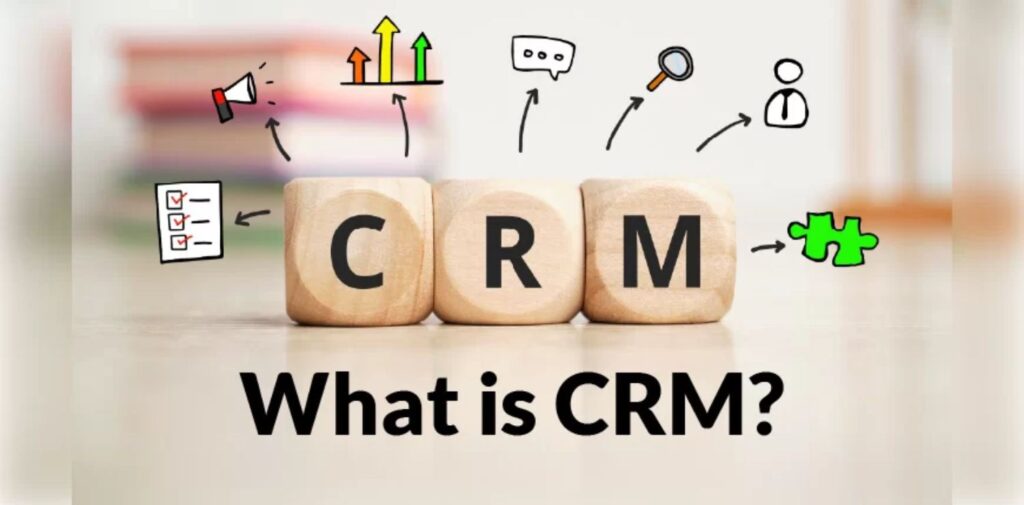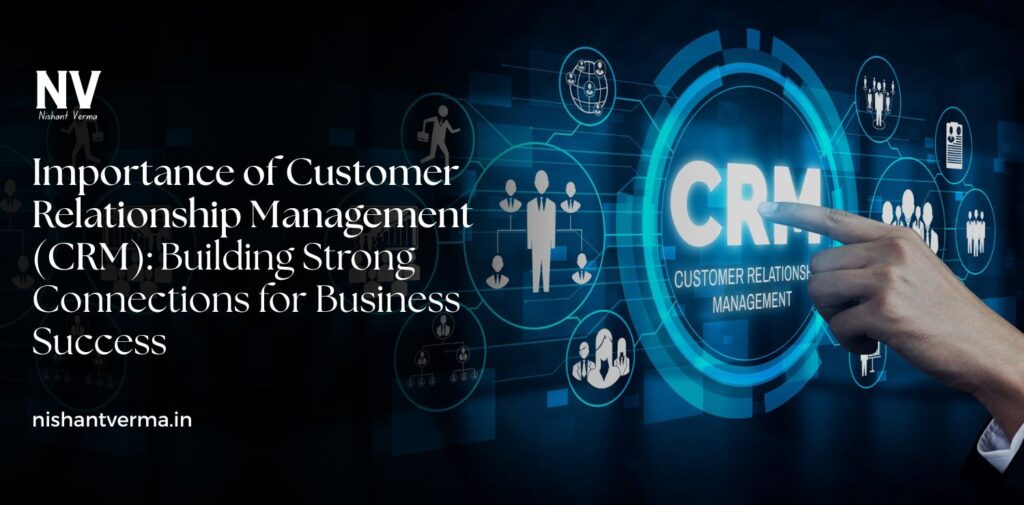In today’s competitive business environment, maintaining good relationships with customers is crucial for long-term success. This is where Customer Relationship Management (CRM) plays a vital role. CRM is more than just a tool; it is a strategy that helps businesses connect with their customers, understand their needs, and build lasting relationships. For businesses in India, where customer loyalty can be a deciding factor in success, CRM can make all the difference in staying ahead of the competition.

What is CRM?
Customer Relationship Management (CRM) refers to the practices, strategies, and technologies that businesses use to manage and analyze customer interactions and data. The goal of CRM is to improve customer service relationships, assist in customer retention, and drive sales growth. In simple terms, CRM helps businesses understand their customers better, so they can offer products and services that meet customer expectations.
In India, businesses are rapidly realizing the need for effective CRM systems, especially as more consumers are moving online and expectations for personalized service increase. A well-implemented CRM system can help businesses stay connected with their customers, streamline processes, and improve profitability.
Improved Customer Service and Satisfaction
One of the most significant benefits of CRM is improved customer service. In today’s world, customers expect quick responses, personalized attention, and seamless interactions with businesses. With CRM, companies can track all customer interactions in one place, making it easier for customer service representatives to provide fast and accurate responses.
For example, if a customer calls with a question or complaint, the representative can quickly access the customer’s previous interactions and purchase history. This enables the representative to resolve issues faster and offer personalized solutions. In India, where customer expectations are constantly rising, offering excellent customer service is crucial for retaining customers and fostering brand loyalty.
Personalized Marketing and Targeted Campaigns
CRM systems allow businesses to gather detailed information about their customers, such as their preferences, buying habits, and previous interactions. This data is valuable because it allows businesses to create targeted marketing campaigns that resonate with specific customer segments.
For instance, an online retail store can use CRM data to identify customers who regularly purchase certain products and then send them personalized offers or recommendations based on their past purchases. In India, where the market is diverse and consumers are often bombarded with generic ads, personalized marketing can make a huge impact. Customers are more likely to engage with a brand that understands their unique needs and offers tailored solutions.
Increased Sales and Revenue
Another important aspect of CRM is its ability to drive sales and revenue growth. By analyzing customer data, businesses can identify sales opportunities, predict customer behavior, and create strategies to upsell or cross-sell products. A CRM system helps businesses track leads, follow up on potential sales, and convert them into loyal customers.
For example, a business that sells electronic gadgets can use CRM to track customers who previously bought smartphones and then send them targeted offers for accessories, repairs, or upgrades. In India, where the cost of acquiring new customers is high, CRM helps businesses focus on nurturing existing relationships, which is often more cost-effective than constantly searching for new customers.

Better Customer Retention and Loyalty
Customer retention is essential for the long-term success of any business. In India’s competitive market, businesses cannot afford to lose customers to competitors. CRM systems play a vital role in enhancing customer loyalty by keeping track of customer satisfaction levels, addressing complaints, and offering timely rewards or incentives.
For instance, if a customer has a negative experience, a CRM system can alert the business to address the issue before it escalates. By taking proactive steps to resolve problems, businesses can prevent customers from switching to competitors. Moreover, CRM systems often include features like loyalty programs, which allow businesses to reward repeat customers, thus strengthening the bond between the business and the customer.
Streamlined Processes and Improved Efficiency
CRM systems automate several processes, reducing manual work and improving operational efficiency. For example, CRM can automate the process of follow-up emails, customer satisfaction surveys, and reminders for sales calls. This automation not only saves time but also ensures consistency and accuracy in customer interactions.
For businesses in India, where many are still working to streamline their processes, CRM can significantly enhance productivity. With a CRM system in place, businesses can easily track customer communications, sales pipeline, and other key metrics, ensuring that nothing falls through the cracks. This improved efficiency leads to better customer experiences and faster response times, which are essential for building a strong reputation in today’s competitive market.
Valuable Data for Decision-Making
CRM systems collect vast amounts of data that can be used to make informed business decisions. By analyzing customer data, businesses can identify trends, patterns, and areas for improvement. For example, a business can track which products are most popular among certain customer segments and adjust their marketing strategies accordingly. Similarly, CRM data can provide insights into customer satisfaction levels, allowing businesses to address issues before they affect customer loyalty.
In India, where businesses often operate in fast-changing markets, having access to real-time data helps decision-makers respond quickly to shifts in consumer behavior. Whether it’s adjusting product offerings, refining marketing strategies, or improving customer service processes, CRM provides businesses with the information needed to stay agile and competitive.
CRM for Small and Medium Businesses (SMBs) in India
In India, small and medium-sized businesses (SMBs) form the backbone of the economy. Many of these businesses struggle with maintaining customer relationships due to limited resources and manpower. CRM systems offer a cost-effective solution to SMBs by helping them manage customer data, track interactions, and automate processes—all in one platform.
For instance, a small restaurant owner can use a CRM system to track customer preferences and send personalized offers or promotions to regular customers. Similarly, a local retailer can use CRM to keep track of customer birthdays or anniversaries and send special discounts as a way to show appreciation. By implementing CRM, SMBs can compete with larger businesses and create meaningful connections with their customers.

Challenges of CRM Implementation in India
While CRM offers many benefits, businesses in India may face challenges when implementing these systems. One of the main hurdles is the lack of awareness and understanding of CRM’s value. Many small businesses are still reluctant to invest in CRM software due to perceived high costs or a lack of technical expertise.
Additionally, businesses may face challenges in data integration and quality. For CRM to be effective, businesses need to ensure that they are collecting accurate and relevant data from multiple sources, including social media, websites, and in-store interactions. Without proper integration, CRM systems can become less effective, leading to missed opportunities and customer dissatisfaction.
Conclusion
Customer Relationship Management (CRM) is no longer a luxury—it’s a necessity for businesses in India to stay competitive and thrive in today’s market. By improving customer service, personalizing marketing efforts, increasing sales, enhancing customer retention, and streamlining operations, CRM helps businesses build strong, lasting relationships with their customers.
For businesses of all sizes, CRM provides valuable insights that can drive decision-making and growth. While the initial implementation may require time and effort, the long-term benefits far outweigh the challenges. Whether you’re a small startup or a large enterprise, investing in CRM can help you understand your customers better, improve their experience, and ultimately drive your business to success. In India’s rapidly evolving market, CRM offers businesses the tools they need to foster loyalty, adapt to changes, and stay ahead of the competition.




